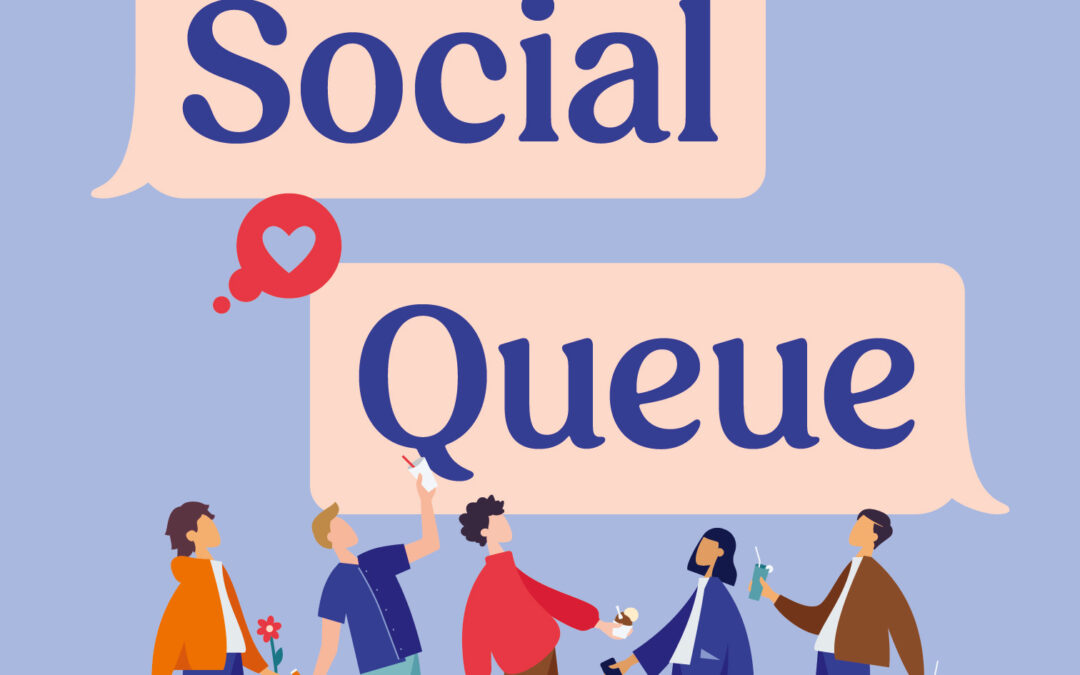Kay Kerr’s second novel Social Queue (Text Publishing 2021) is another fantastic YA deep dive into big emotions and all the feelings that come with that liminal time between adolescence and young adulthood.
To read Kerr’s books is to feel that you are sitting with her in a café, having a chat about ordinary, everyday things. An intimate, open and honest conversation with a close friend about navigating growing up, the often confusing messages about what it means to be a good friend, a good colleague or a romantic love-interest. It’s a discussion about miscommunications, missed social cues, mismanaged interactions and the unintentional hurt that can frequently result. But it’s also about the accidental hilarity that can arise from these situations, a deadpan humour that Kerr so adeptly portrays in her work – part naivety, part guilelessness, part (too much?) honesty and saying what you really think.
The protagonist, Zoe Kelly, happens to be autistic and while the narrative revolves around her trying to mask this, and then embrace it, the novel’s themes and content will be relatable and relevant to any young person trying to find their way in the world, exploring their self-identity, searching for love or romance and attempting to ‘fit in’. These are difficulties common to most adolescents. For an autistic person, the sensory overload and the abundance of feelings is multiplied by 100, but still at the base level, is something to which most readers will relate.
After high school graduation, Zoe lands a job as an unpaid intern for an online media company. She is passionate about writing and hopes this position will lead her places and open doors. But when she ‘accidentally’ writes about her negative school history (particularly around romantic interests and bullying) and her experiences of online dating, she hits a nerve amongst readers who are all too keen to confront her image of herself, and to begin a campaign to find her love. As she ‘interviews’ (dates) a list of people that she assumed had no interest in her (but maybe she just misread the cues?), she discovers that she is not alone in her anxieties and awkwardness, that she might have had more friends than she realised, and that she is capable of much more than she at first suspected.
This novel will appeal to anyone who has trouble deciphering the often confusing and conflicting social signals that we are expected to automatically comprehend, and gives voice to a character who – despite her challenges – not only comes to accept and embrace them, but also to understand which traits are actually strengths. This is a love story, but it is primarily about self-love and acceptance, and how important that is before you can be expected to find love with someone else. Zoe is a great character, full of hidden depths, and much stronger than even she herself realises. Despite some moments of doubt and insecurity, she discovers a way to stand up for herself and to educate others around the tolerance and acceptance of difference.

